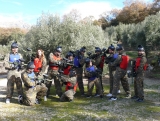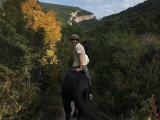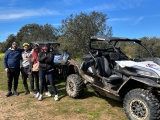But how do you get started? From what age? Can pregnant women dive? Surely, many questions are running through your mind before slipping into a wetsuit and learning to use a regulator. Right? Don’t worry – we’re here to help!
11 Key Questions for Beginner Divers
1. Is it difficult to learn?
No, especially if you already know how to swim and feel comfortable in the water. The only slightly tricky part is learning to use and feel at ease with the regulator to breathe underwater. But the rest is straightforward – just go with the flow.
2. Can anyone scuba dive?
3. What’s the minimum age for diving?
From 8 years old, kids can try snorkelling, but for scuba diving with tanks, you must be at least 16.4. Can you dive while pregnant?
5. Do you need to know how to swim?
You don’t need to be an expert, but basic swimming skills are recommended to feel confident in the water and overcome the fear of an unfamiliar environment. You’ll need to move comfortably!
6. Do you need your own gear?
Want to know more? Read: scuba diving equipment
7. Is diving dangerous?
8. What if there’s an emergency underwater?
There’s a sign language for underwater communication with your buddy or instructor. Plus, all instructors are CPR-certified (Cardiopulmonary Resuscitation) and trained in First Aid.
9. Do you need a course to try diving?
10. Are diving courses expensive?

11. Which certification system is better? PADI or SSI?
Both are equally valid – simply choose the dive centre that best fits your needs.












